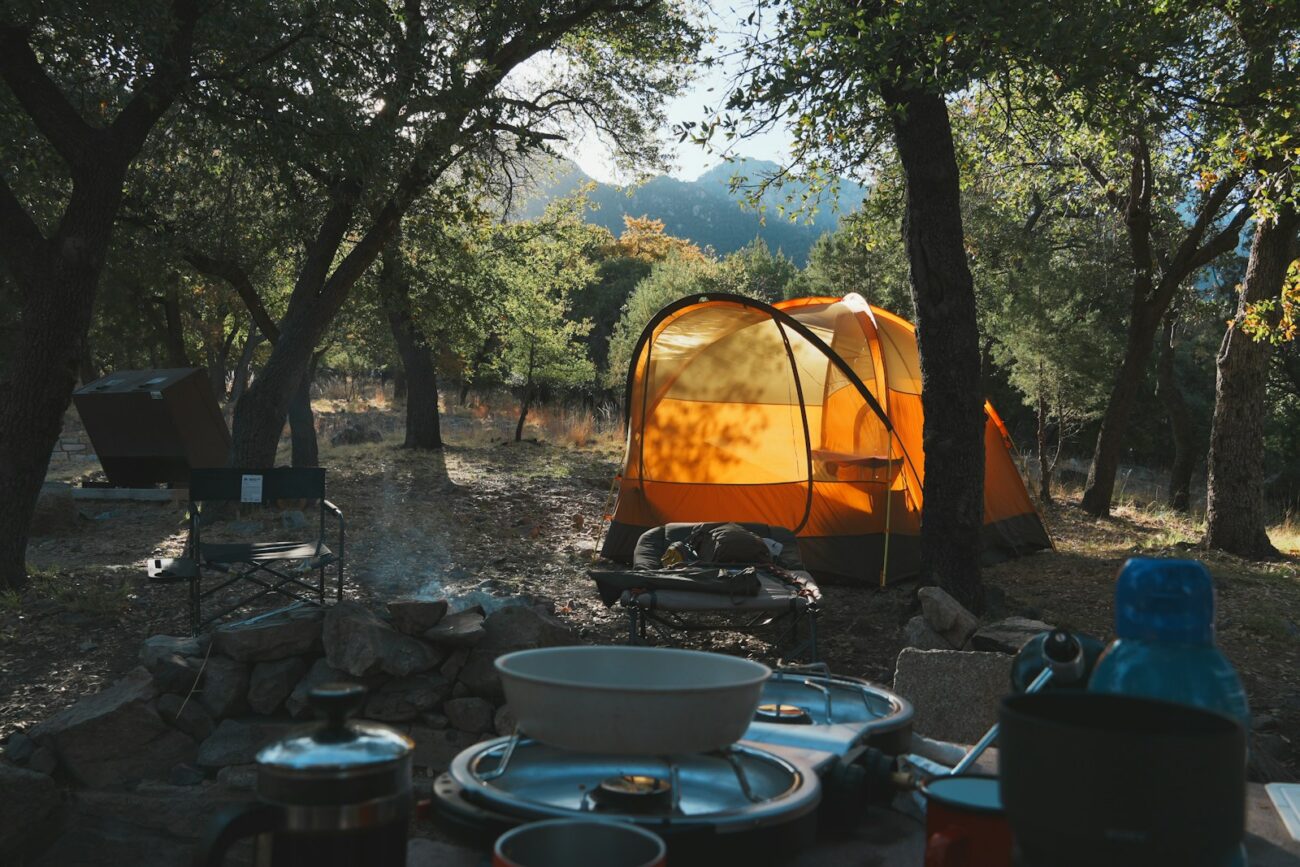Venturing into the great outdoors for a camping trip promises adventure, connection with nature, and memories that last a lifetime. However, the difference between an unforgettable experience and a challenging ordeal often comes down to preparation and know-how. Seasoned campers have developed clever techniques over years of outdoor experiences—tricks that transform ordinary camping into extraordinary adventures. Whether you’re pitching a tent for the first time or consider yourself a wilderness veteran, these twelve expert hacks from outdoor enthusiasts will elevate your camping game, making your next trip more comfortable, efficient, and enjoyable.
1. Master the Art of Fire Starting
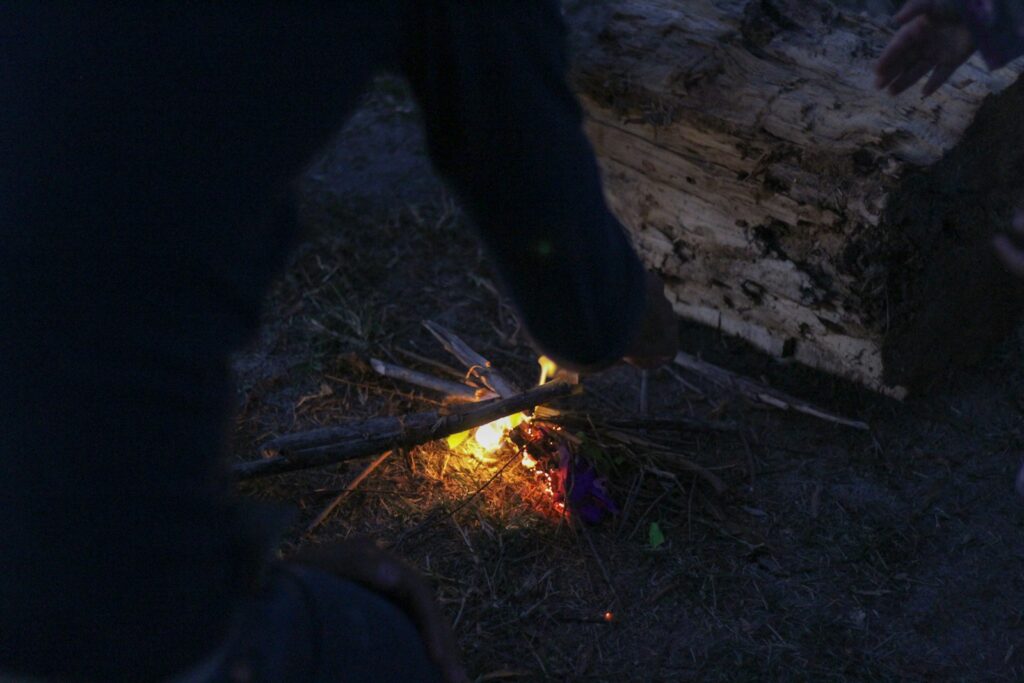
Reliable fire-starting techniques separate novice campers from the pros. Beyond carrying waterproof matches and lighters, experienced campers pack petroleum jelly-soaked cotton balls as foolproof fire starters that ignite quickly and burn for several minutes—even in damp conditions. Another time-tested hack involves bringing dryer lint stored in empty egg cartons or toilet paper tubes as lightweight, highly flammable kindling. For those unexpected rainy situations, packing a few candles can provide a steady flame source to help ignite stubborn wood. Remember that fire-starting skills improve with practice, so experienced campers recommend practicing these techniques at home before relying on them in the wilderness.
2. Elevate Your Sleeping System
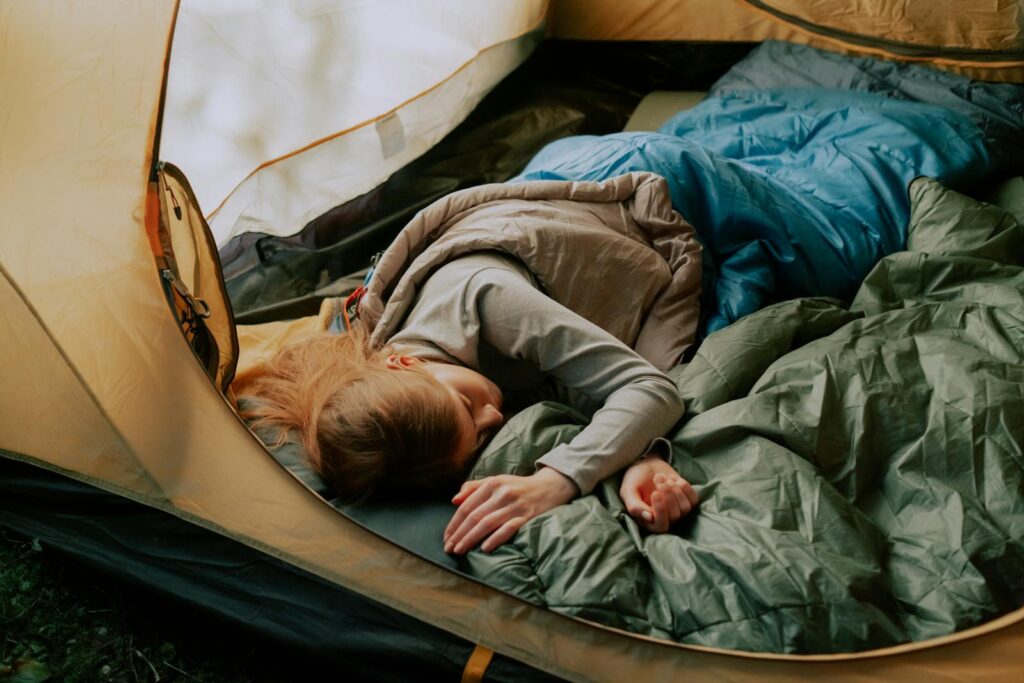
Quality sleep makes all the difference during multi-day outdoor adventures, and veterans know that what’s beneath you matters as much as what’s above. Before setting up your tent, clear the ground of rocks and sticks, then use a tarp underneath for additional moisture protection and insulation. Sleeping pads serve dual purposes—they provide cushioning and critical insulation from the cold ground, which draws away body heat through conduction. For maximum comfort, seasoned campers often bring inflatable pillows or stuff extra clothes into a stuff sack to create a comfortable headrest. In colder weather, filling a non-plastic water bottle with hot water and placing it at the foot of your sleeping bag creates a natural heater that lasts throughout the night.
3. Pack Smarter, Not Harder
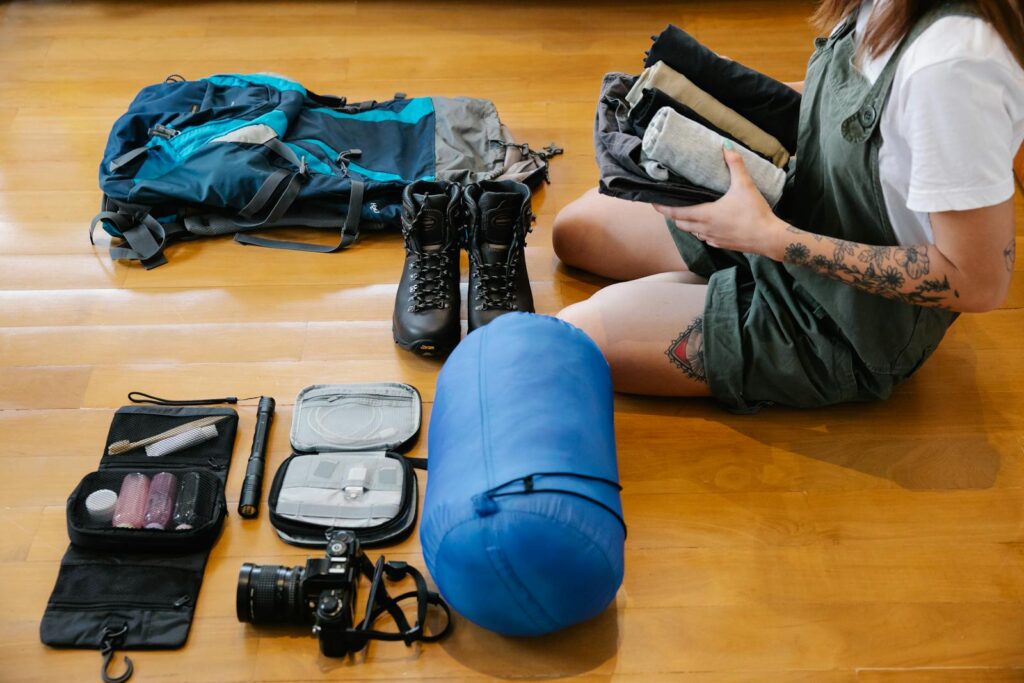
Efficient packing transforms the camping experience, starting with the strategic use of resealable plastic bags to organize, waterproof, and compress items. Experienced outdoor enthusiasts swear by rolling clothes instead of folding them, which saves significant space and reduces wrinkles. Pre-planning meals and measuring exact ingredients into labeled containers eliminates food waste and bulky packaging while simplifying meal preparation at the campsite. For electronics and small essentials, repurposing prescription bottles, contact lens cases, or pill organizers creates waterproof storage for matches, spices, or first aid supplies. The packing golden rule among veterans: lay everything out before loading your pack, then eliminate at least 20% of what you initially planned to bring.
4. Create an Ultimate Camp Kitchen
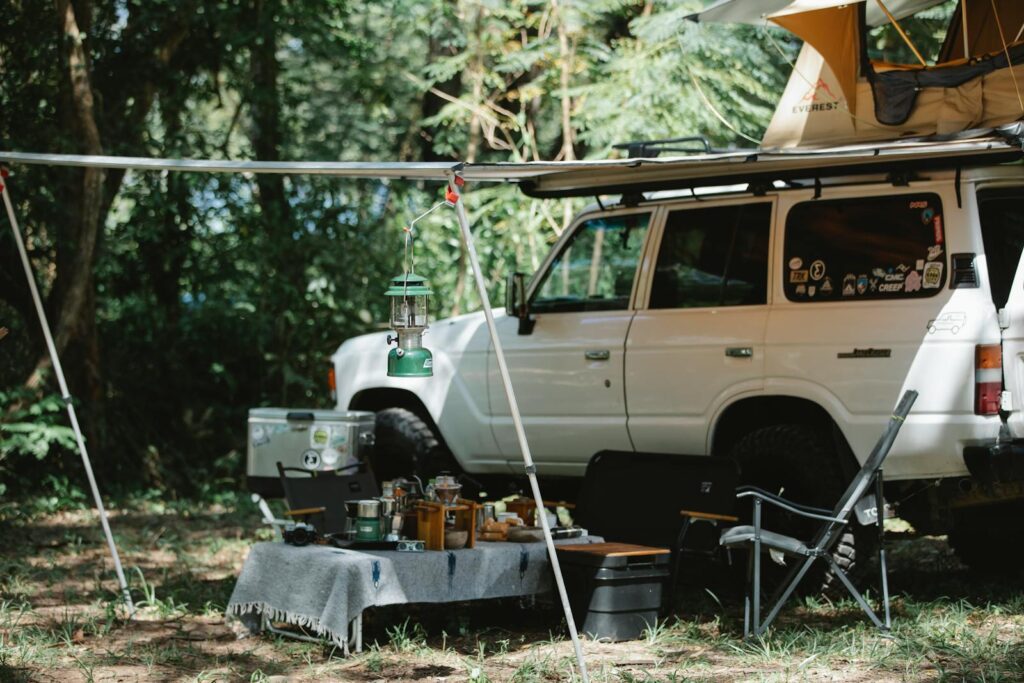
A well-organized camp kitchen elevates outdoor meals from basic sustenance to memorable dining experiences. Seasoned campers recommend bringing a dedicated collapsible wash basin and biodegradable soap for dishes, along with a microfiber cloth that dries quickly between uses. Pre-cracking eggs at home and storing them in a leak-proof container eliminates the risk of crushed eggs while simplifying breakfast preparation. For spices, repurpose Tic Tac containers or use pill organizers to carry the perfect amount of seasonings without bulk. Perhaps the most versatile cooking hack involves foil packet cooking—wrapping ingredients in aluminum foil and placing them in hot coals creates delicious meals with minimal cleanup, allowing flavors to meld while you enjoy campfire conversations.
5. Master Weather Adaptation Techniques
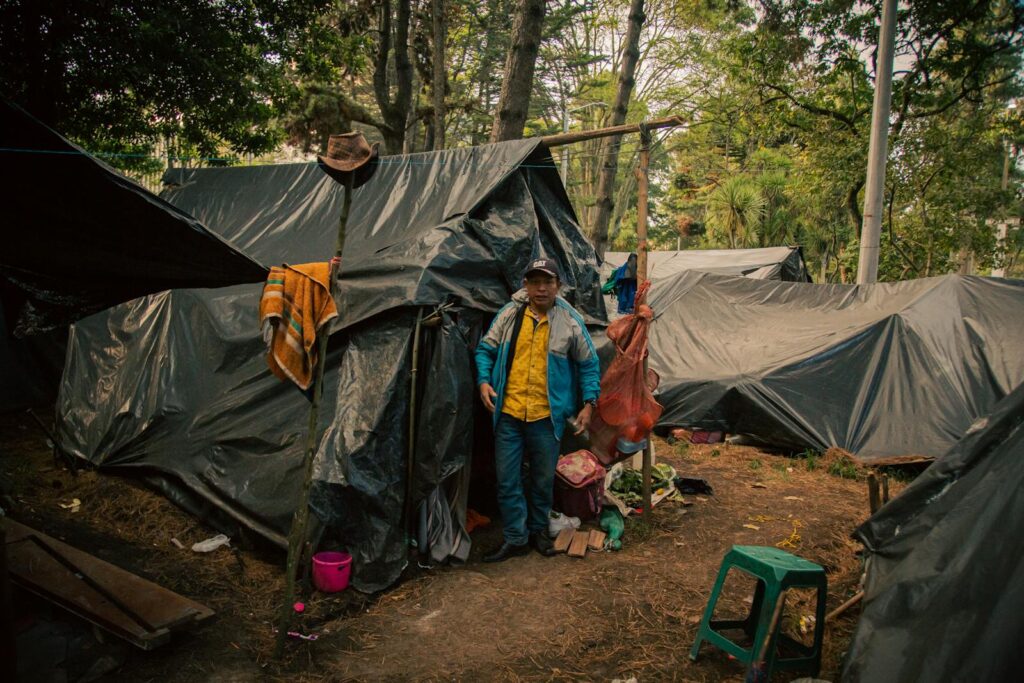
Weather can make or break a camping trip, but experienced outdoor enthusiasts come prepared for any conditions. When camping in rainy environments, digging a small trench around your tent (where permitted) channels water away from your sleeping area, while hanging a tarp with one side slightly lower creates runoff direction for overhead protection. For hot weather camping, positioning your tent to catch morning sun but afternoon shade maintains a comfortable sleeping temperature, while bringing a battery-powered fan can provide welcome relief during still, humid nights. Cold-weather campers know to bring extra ground insulation and to sleep with tomorrow’s clothes in the sleeping bag so they’re warm to put on in the morning. The universal rule among camping veterans: always check detailed weather forecasts but prepare for conditions 20 degrees warmer and colder than predicted.
6. Illuminate Your Campsite Strategically
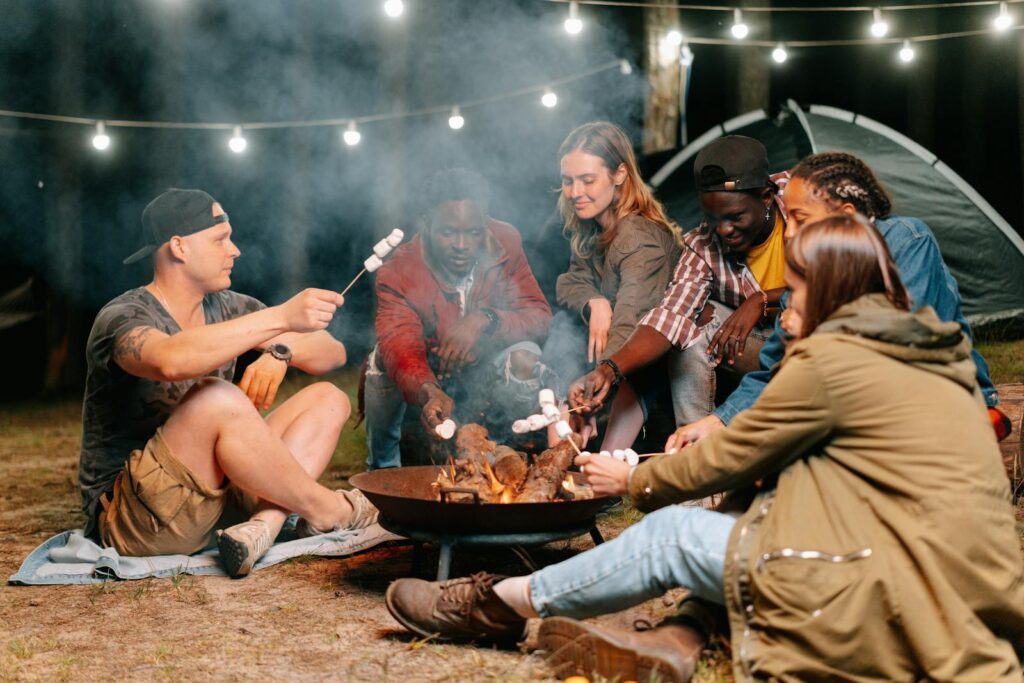
Thoughtful lighting transforms a campsite from functional to magical while enhancing safety after sunset. Headlamps rank as the essential lighting tool among experienced campers, keeping hands free for cooking, setting up late arrivals, or nighttime bathroom trips. For ambient lighting, stringing lightweight LED fairy lights around the campsite creates a warm, inviting atmosphere with minimal battery drain. One ingenious hack involves strapping a headlamp to a gallon water jug to create a lantern that diffuses light evenly throughout a tent or eating area. Solar-powered pathway lights strategically placed between tents and bathroom facilities prevent nighttime stumbles and can be repositioned as needed. Remember that preserving night vision requires using red light settings when available, especially in areas where wildlife observation is a priority.
7. Develop a Foolproof Water System
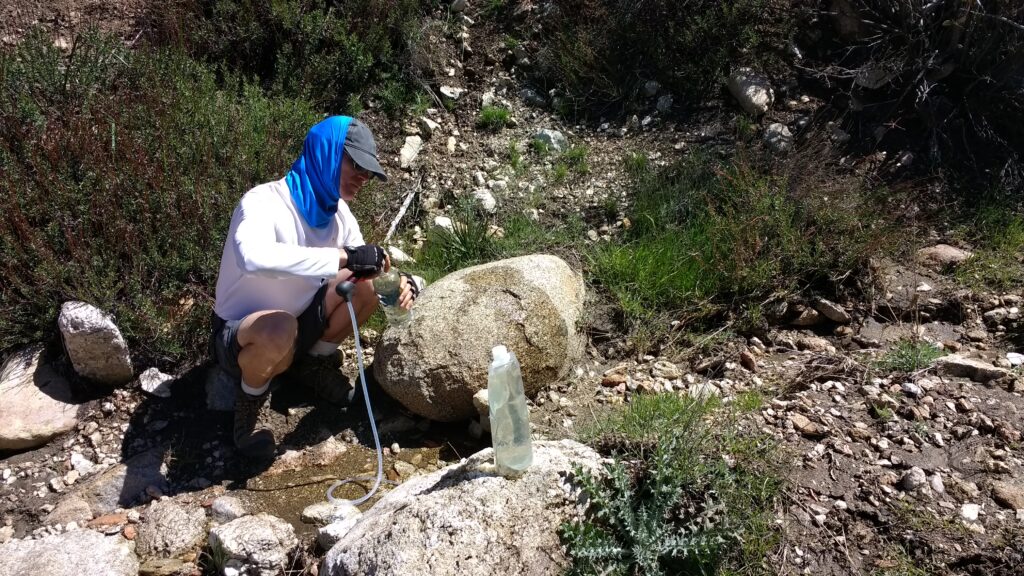
Water management represents one of the most critical aspects of successful camping, starting with knowing exactly how much you need per person per day—typically a minimum of two liters for drinking plus additional water for cooking and cleaning. Veteran campers recommend bringing multiple water purification methods, including filters, purification tablets, and the ability to boil water, ensuring safe hydration regardless of circumstances. For convenient handwashing, creating a simple station using a water container with a spigot hung from a tree branch alongside biodegradable soap saves countless trips to the water source. In regions where water sources are plentiful but require purification, collapsible containers allow you to collect and treat water in batches rather than making multiple collection trips. The seasoned camper’s golden rule: never pass a reliable water source without topping off your containers, especially in arid environments.
8. Perfect Your Campsite Selection
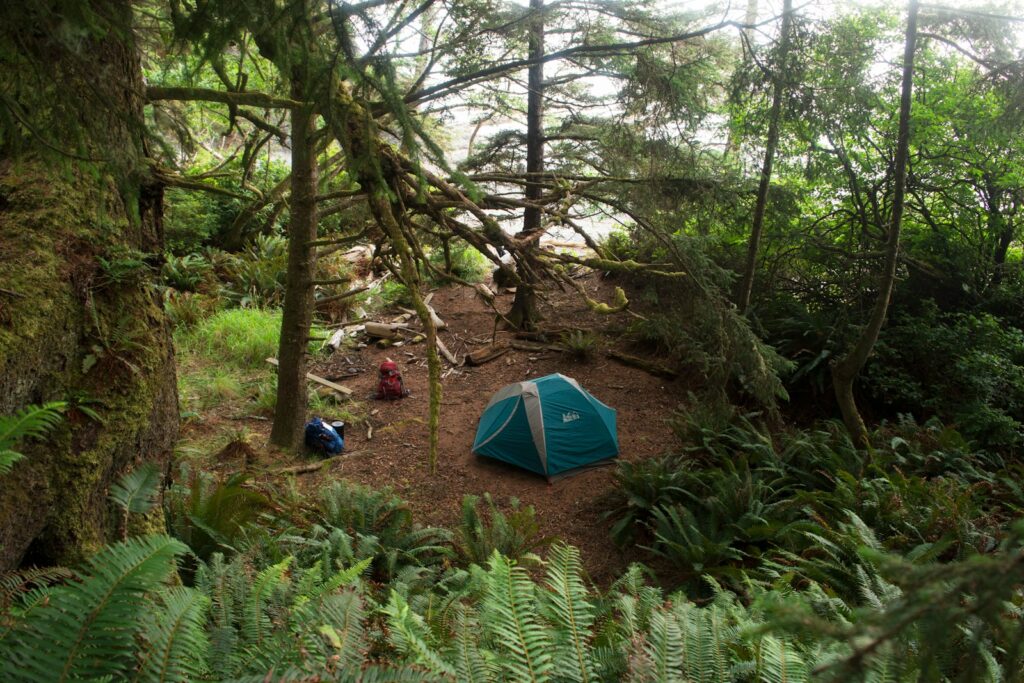
Choosing the ideal camping spot involves more strategy than simply finding flat ground, beginning with the critical assessment of “widowmakers”—dead trees or hanging branches that could fall in wind or rain. Experienced campers look for natural windbreaks like rock formations or dense shrubbery on the windward side while ensuring adequate airflow to prevent condensation inside tents. The ideal tent location sits slightly elevated compared to the surrounding terrain, preventing water pooling during rainfall, while still remaining at least 200 feet from water sources to minimize environmental impact. For maximum comfort in hot climates, prioritize morning sun and afternoon shade by noting the sun’s trajectory and positioning your tent accordingly. Remember that the perfect campsite balances convenience, safety, and minimal environmental impact—sometimes requiring you to look beyond the most obvious or popular spots.
9. Create Animal-Proof Food Storage
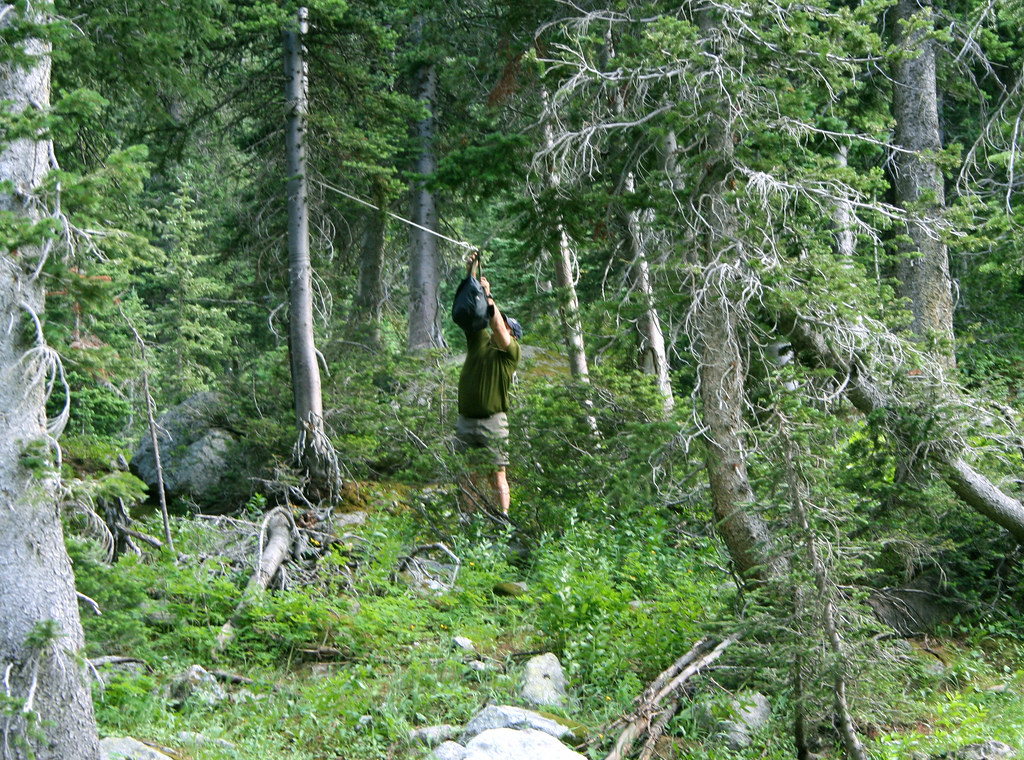
Proper food storage represents not just convenience but critical safety in the wilderness, particularly in bear country where appropriate storage becomes mandatory. Veteran campers hang food bags using the “PCT method” (Pacific Crest Trail), suspending food at least 12 feet high and 6 feet from the nearest tree trunk, making it inaccessible to even the most determined bears. For areas frequented by smaller critters, storing food in odor-proof bags inside sealed containers prevents middle-of-the-night visits from raccoons, mice, and other foraging animals. Even in seemingly benign environments, keeping a clean camp by washing dishes immediately after meals and storing scented items like toothpaste with food prevents wildlife encounters. Remember that proper food storage protects both your supplies and local wildlife, which can develop dangerous habits and dependencies when they access human food.
10. Pack a Strategic First Aid Kit
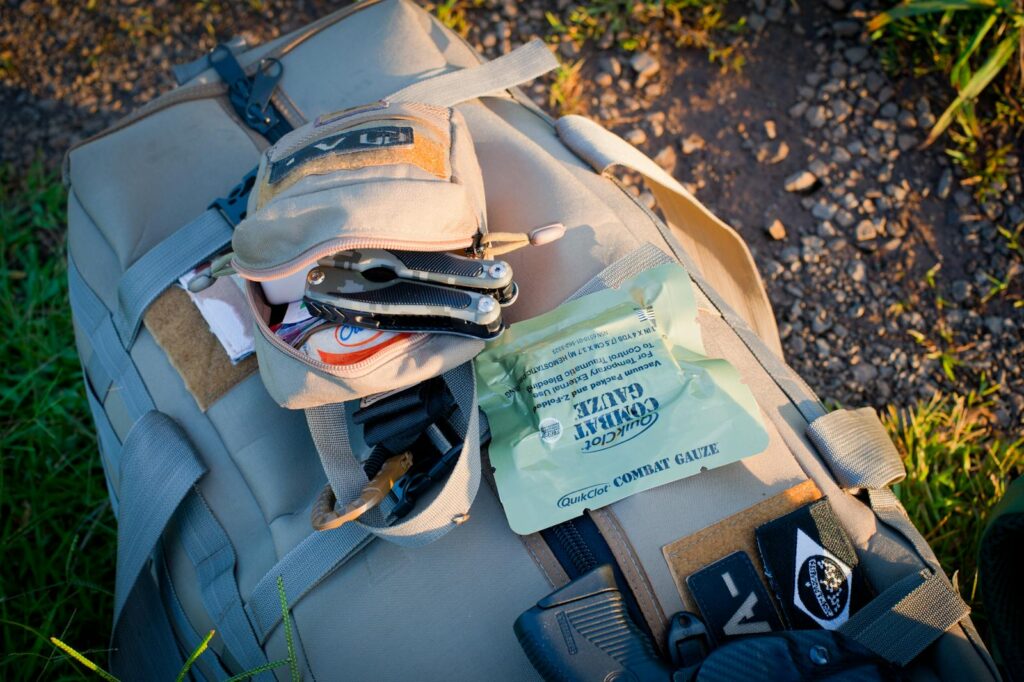
Experienced outdoor enthusiasts customize first aid kits beyond basic pre-packaged versions, tailoring contents to trip length, destination, and specific activities. Beyond standard bandages and antiseptics, seasoned campers include moleskin for hot spots before they become blisters, antihistamines for allergic reactions to plants or insects, and electrolyte packets to prevent dehydration. For multi-day backcountry trips, adding prescription medications like antibiotics (obtained from your doctor) provides peace of mind when professional medical help may be days away. Perhaps most importantly, veterans recommend gaining actual first aid training rather than simply carrying supplies, as knowledge of how to properly clean wounds, immobilize injuries, and recognize serious conditions can make the critical difference in emergency situations. Remember to check and refresh your kit before each trip, as medications expire and supplies deplete over time.
11. Master the Art of Campsite Comfort
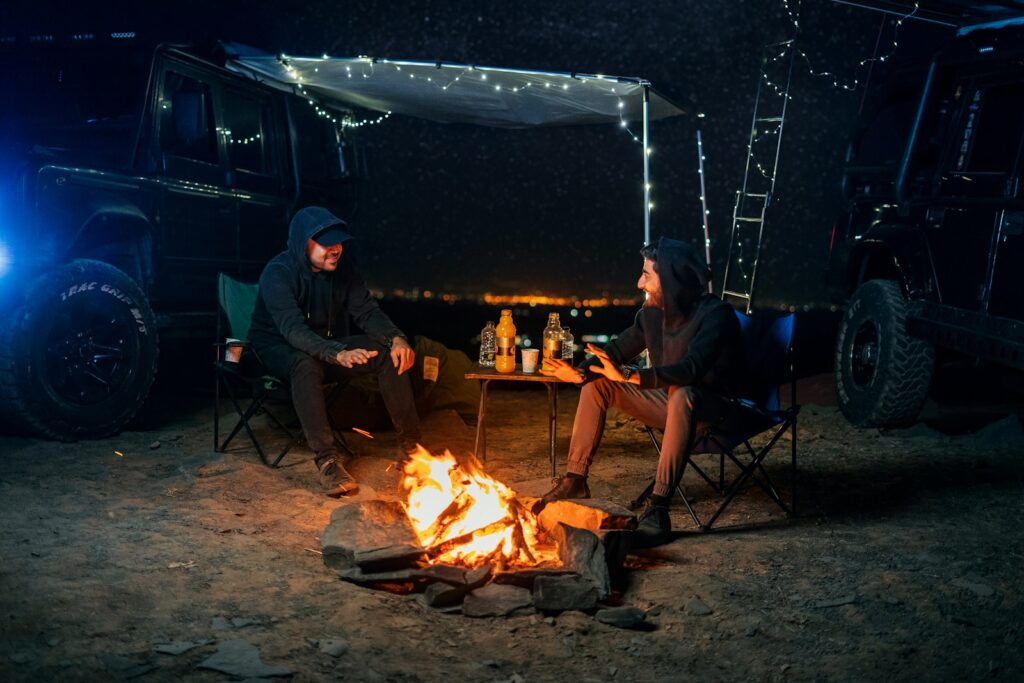
Creating a comfortable basecamp transforms the entire outdoor experience, starting with designating specific zones for cooking, eating, socializing, and sleeping. Experienced campers bring lightweight, packable camp chairs or create seating areas using logs or rocks arranged around the fire pit, providing comfortable gathering spaces for meals and conversation. For longer stays, stringing a clothesline between trees creates crucial drying space for wet gear, while bringing a small whisk broom helps keep tent interiors clean and sand-free. Perhaps the most underrated comfort hack involves proper campsite shoes—lightweight, slip-on footwear reserved exclusively for around-camp use prevents tracking dirt into tents while giving hiking boots time to dry out. Remember that thoughtful campsite layout not only enhances comfort but also minimizes environmental impact by concentrating activity in appropriate areas.
12. Leave No Trace Like a Professional
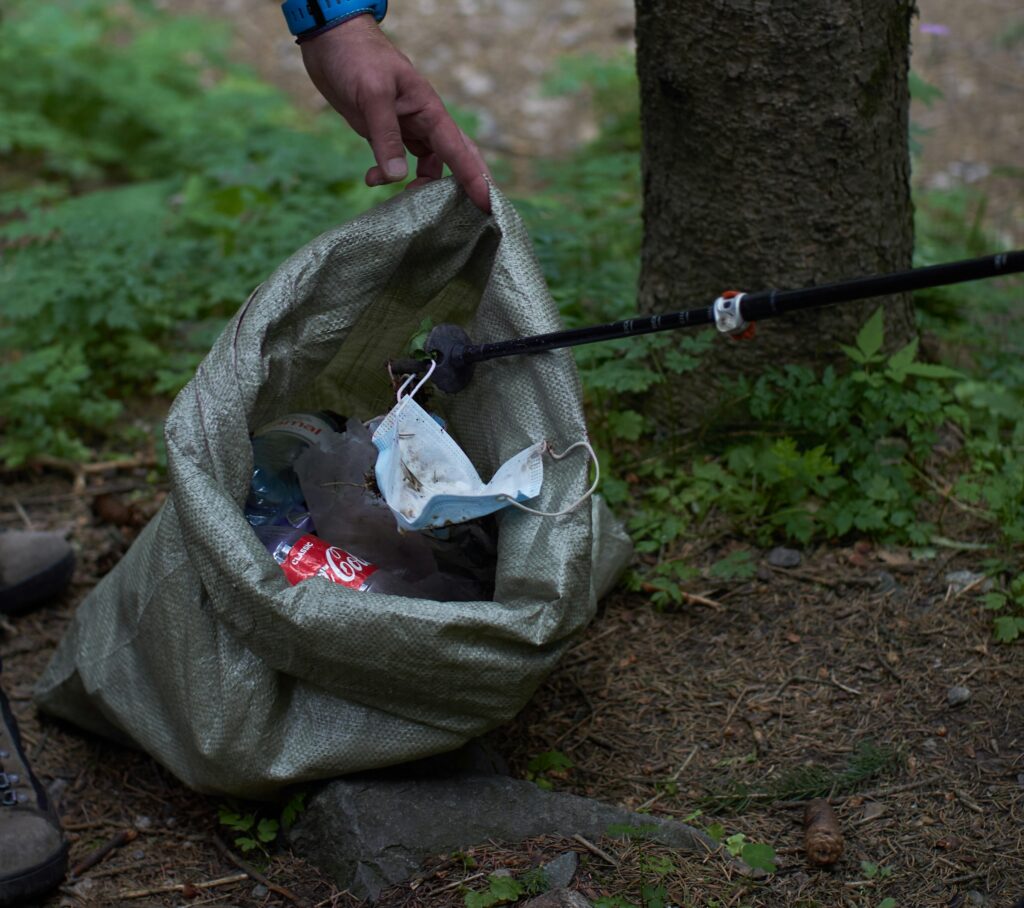
The mark of truly experienced outdoor enthusiasts isn’t what they bring to the wilderness, but what they don’t leave behind. Professional-level Leave No Trace practices start before the trip by removing excess packaging from food and supplies at home, reducing potential trash at the campsite. Seasoned campers bring dedicated bags for separating recyclables, compostables, and trash, then pack everything out—including used toilet paper in designated waste bags when backcountry camping. For dishwashing, using a strainer to catch food particles prevents them from entering water sources, while dispersing gray water at least 200 feet from lakes and streams protects aquatic ecosystems. The ultimate camping hack may be the microtrash sweep—before departing, experienced campers carefully inspect their site for tiny bits of litter like twist ties, clothing tags, or tent stakes that might otherwise remain in the environment for years. Remember that proper wilderness etiquette ensures these special places remain pristine for future generations of outdoor enthusiasts.
Armed with these twelve professional camping hacks, you’re well-equipped to transform your next outdoor adventure from merely good to truly exceptional. These techniques represent generations of wilderness wisdom, refined through countless nights under the stars by those who understand that camping is both an art and a science. By incorporating these strategies into your outdoor routine, you’ll not only enhance your own experience but also join the ranks of responsible outdoor enthusiasts who preserve the natural world while fully enjoying its wonders. Remember that becoming a camping pro doesn’t happen overnight—each trip builds your skill set and deepens your connection to the natural world, creating a lifelong journey of outdoor discovery.

